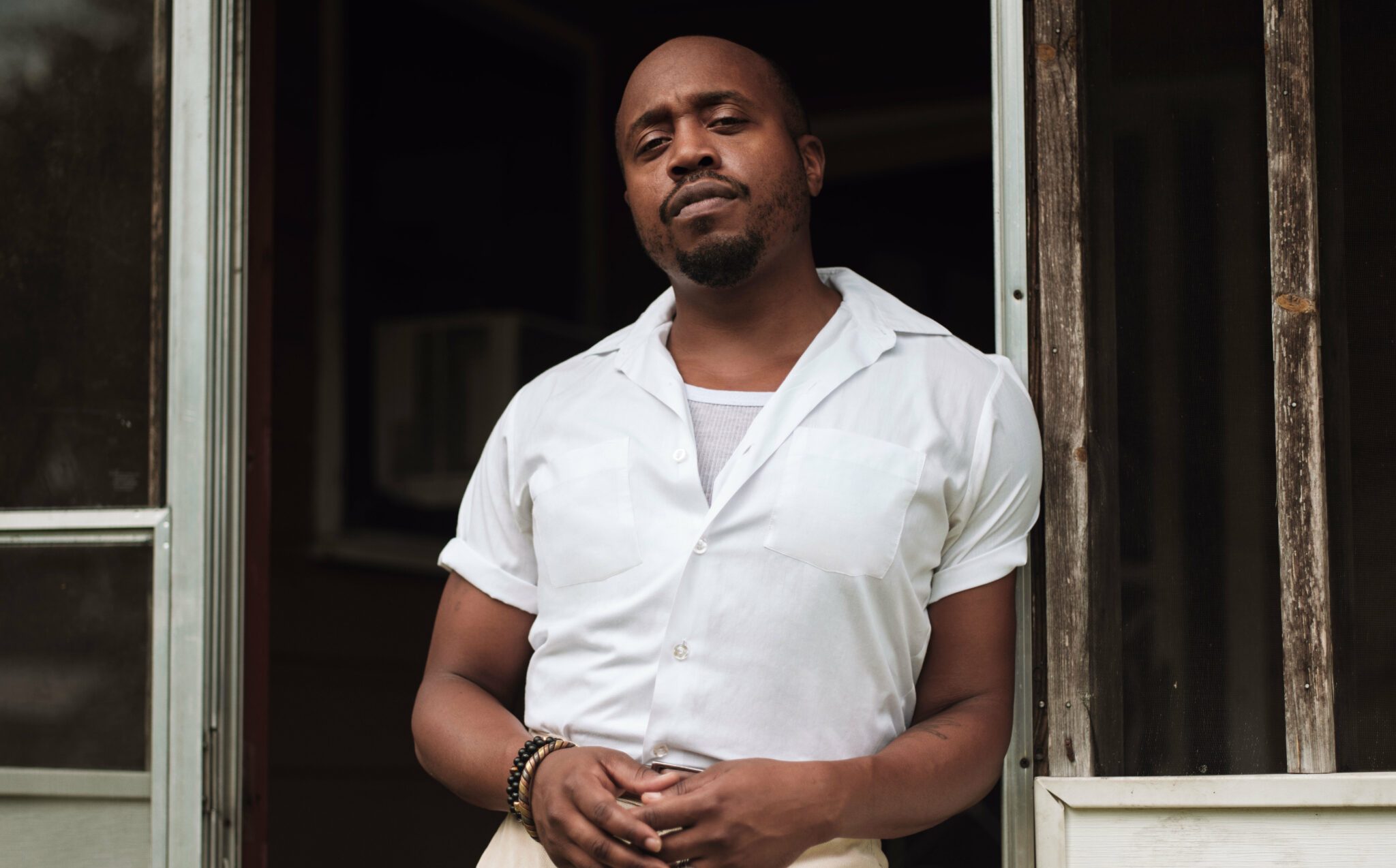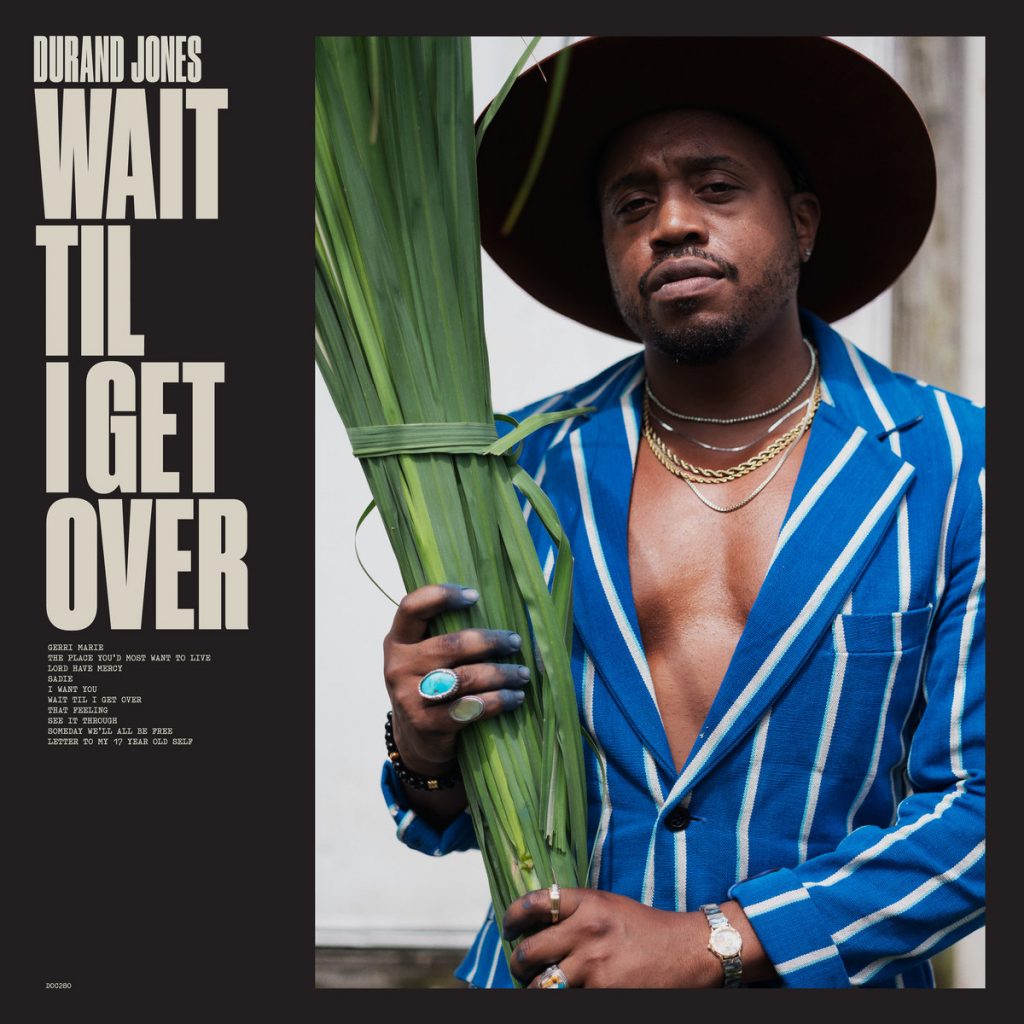“Hometowns have a way of keeping a part of you,” says Durand Jones, regarding his solo debut album. Wait Til I Get Over is a veneration project – an abstracted and contemporary oral tradition that passes story down from (and heaps homage upon) his hometown of Hillaryville, Louisiana.
In the title track, Jones resurrects vintage Gospel composition to provide us something new but familiar. “That song’s been in my head for the last ten years,” says Jones, “and it sat there because I didn’t know how to record it.” Based loosely on a “Lining Hymn” style, this relic dogged Jones until repeat listens to Krystle Warren’s “Move” pushed him to ask Warren’s music director, plainly, how they had achieved that song’s vocals. The answer? A one-person replication of a full choir.
Jones set a mic in his San Antonio bedroom and got to recording. Moving left to center to right, placing himself in every choral section of the room, Jones tried to embody and emulate specific members of his hometown choir—mentors and keepers of this specific musical tradition. It’s a tactile approach and a visceral success, stomping louder and louder until synths set the song alight, illustrating the refrain “I’ll hitch on my wings, and then I’ll try the air”.
Throughout the album, Jones shows us he’s not afraid to get his hands dirty, enduring with a concept until it takes the proper form. On lead single “Lord Have Mercy”, Jones describes the method and reward of this rare live-band recording—to simply play it, back to back without stopping, until the energy caught up to his lyrics and mood references. “The band would groove and jam,” says Jones, “and I’d think ‘Okay, it’s in the pocket; I can jump in.’ And we just did it.” With Ben Lumsdaine on drums, Drake Ritter on guitar, Matt Romy on keyboards, and Glenn Myers on bass, the result is reminiscent of Muscle Shoals—unconstrained, defiant, and thoroughly precise.
“That Feeling” finds Jones reflective, revealing private histories absent from his former projects. He states, “This is the first breakup song I’ve ever written, and the only love song I’ve written for another man.” The track tides us through a climactic build of emotions—the frustration, sadness, and loss that comes with the end of any intimate relationship.
Where the love featured in “That Feeling” is of a longing heart, the love of “Sadie” is a guilty conscience. “Sadie” doubles down with an irresistible balance of mettle and velvety, singalong smoothness—owing as much to Brittany Howard as to Sam Cooke.
As one of the singers and principle songwriters of his band Durand Jones and the Indications, Jones’s professional creative efforts have been, for the most part, in aggregate. On “Wait Til I Get Over”, Jones leans into the vulnerability of his singular perspective, delivering something utterly distilled and potent. Of these songs, most of which were conceived as far back as 2014, Jones writes in the album’s liner notes that “They called out to me at truck stops. In tour vans and buses. In James Baldwin’s novels and lonely diners. A backstage mirror. An Eartha Kitt documentary. Or any random piano along the way…”
Ultimately, “Wait Til I Get Over” is a study in Jones’s relationship to his roots: to a Black, country, barefoot childhood; to the verdant Gulf South; to his elders; to his queerness. “Through this process I’ve come to learn that I am a proud descendent of Longshoremen on the river, and sugarcane and rice farmers on the land—all in the deep rural south of Louisiana. I am a proud son of Hillaryville and I am proud to be a part of its legacy. This is my story.”
For all the ways his solo debut is a bracingly beautiful musing on the past, it equally honors his present and future as Jones has and continues to come into his own. “I wish I could tell my younger self, ‘You don’t have to stick to the dreams people have for you. You can dream bigger. You are more than capable. You are more than able.’”
Photo: Dead Oceans


